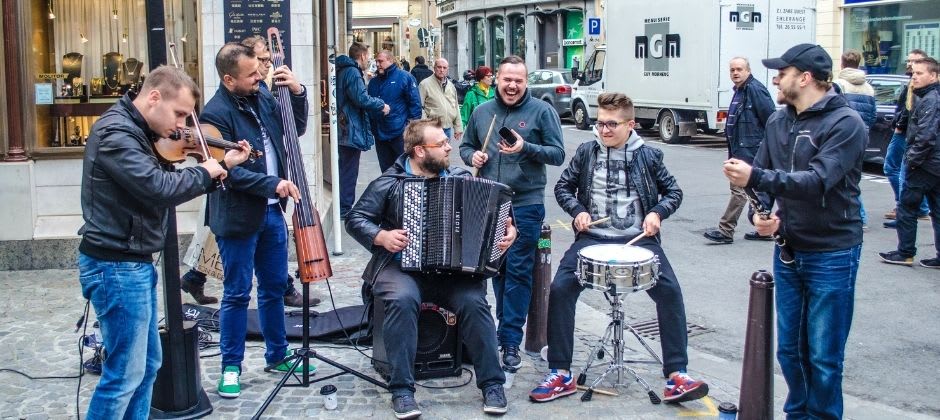Study in Luxembourg: Language & Culture
Luxembourg is a trilingual state in every sense of the word. A plurality of Luxembourgers speak Luxembourgish at home, but all three languages are used in education. Elementary education is in French, middle school in Luxembourgish and high school in German.

Luxembourg is a trilingual state in every sense of the word. A plurality of Luxembourgers speak Luxembourgish at home, but all three languages of its official languages are used in education. Elementary education is in French, middle school in Luxembourgish and high school in German.
All three languages are also used in the judicial and administrative divisions of government. A bill is debated in French, amended in Luxembourgish and then the final vote takes place in German. Luxembourgers regularly shift between all three languages, often in the same sentence. English and Portuguese are also widely spoken.
Before Portugal’s transition to democracy, many Portuguese people left for other countries. At the time, Luxembourg was particularly welcoming of migrants from other Catholic-majority countries. That is why, today, Portuguese and those of Portuguese descent, make up about a sixth of the population.

Luxembourg is a Catholic country, but, like Spain or Ireland, is more culturally-Catholic these days. Luxembourg is secular at the constitutional level, so religion plays no role in the day-to-day running of the country.
Luxembourg is also one of the most socially-liberal countries in the world, on a par with Scandinavia. Luxembourgers are extremely open-minded on a range of social topics - in particular, LGBT rights. Same-sex couples have had the right to marry since 2015 and Luxembourgers overwhelmingly support this.

As for crime, the rate is extremely low in Luxembourg. Violent crime is rare, with petty theft and purse snatchings also being unusual. Luxembourg also has no recent history of terrorism. As such, it’s one of the safest countries in the world.
Luxembourg is a founding member of the border control-free Schengen Area, meaning that you can enjoy short trips to Brussels, Leuven, Paris, Frankfurt and beyond without needing your passport!
Study in Luxembourg
Want an overview of Luxembourg? Do you want to know a little more about the Grand Duchy? The section gives you an oversight of all you need to know.
Education in Luxembourg
Want to learn about how the higher education system works in Luxembourg? Luxembourg is a good destination for a variety of students, given its good programs, low fees and its languages. Take a minute to find out more about the structure of the education system in Luxembourg!
Student Visas
Do you need a visa to enter Luxembourg to study? Learn more about the student visa process, and what you need to enter the country, depending on your citizenship.
Housing & Living Costs
No matter where you study abroad, it’s important to create a budget in advance so that you’re prepared. Therefore, we’ve detailed average living and housing costs so that you can get a better idea of what you would be paying as a student in Luxembourg.
Tuition Fees & Scholarships
Tuition fees for degree programs in Luxembourg can vary. Both international and domestic students are expected to pay tuition fees in Luxembourg, but these fees are normally quite low. We've put together information on how this works, and on scholarships, in this section.
Application Process
Learn more about how to apply to Luxembourgish schools and the documentation you need to do it in this section.
Programs
Ready to look at education in Luxembourg? Use our search engine to find and compare top programs in Luxembourg today!

Author
The Keystone Team is comprised of experienced educators and advisors dedicated to providing valuable resources and advice to students all over the world.